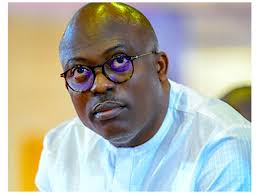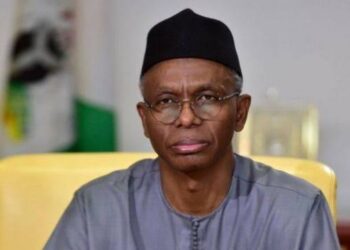“The problem with government credit facility is the high temptation of politicising credit scheme for the benefit of party faithful … This was a prejudice which originated from the wrong premise that loan facilities should be a political tool for distributing money to unintended beneficiaries, like political lackeys and foot soldiers”.
These above were the words of a Professor of Agricultural Economics while reviewing the present and past poverty alleviation programmes in the country and why they have failed to achieve the desired results. The Professor made this mind-boggling revelation – which I feel is worth sharing – during an inaugural lecture she delivered recently at the Federal University of Agriculture, Abeokuta (FUNAAB), Ogun State titled: “Multidimensional Poverty Alleviation in Nigeria and National Development: The Inseparable Siamese Twins”. In revamping the nation’s ailing economy, she called on the government to urgently focus its attention on rapid industrialisation for sustainable national development by according agriculture its pride of place. This can become a reality by engendering good policies particularly; those ones that would tackle hunger and youth unemployment.
The Professor (Mrs.) Carolyn Afolami, who is of the Department of Agricultural Economics and Farm Management, College of Agricultural Management and Rural Development (COLAMRUD) of FUNAAB, in her presentation, described poverty as old as the creation of man as several religious injunctions often emphasised the need to make conscious efforts towards poverty alleviation and the protection of the poor against susceptibility to oppression that is “synonymous to not having a job or a means of livelihood, creating the fear of the future and having to live from hand to mouth. As a result, poverty is losing a child to a curable and preventable illness brought about by unclean water or inability to afford medications. Poverty is powerless: it is the lack of representation and freedom”. She observed that despite local and international efforts to eradicate poverty and hunger, as part of the targets of the Millennium Development Goals (MDGs), as much as about 1.2 billion people still live in extreme poverty worldwide and based on the available statistics, which show that about half of the populace, constituting about 48 percent of the people live in the Sub-Saharan Africa, inclusive of 68 percent, which reside in Nigeria.
Consequently, as many as 842.2 million people around the world were chronically undernourished between 2011 and 2013 out of which Sub-Saharan Africa accounted for 243 million and specifically 12.1 million in Nigeria with cases of extreme, absolute or abject poverty, which is commonly characterised by severe deprivation of basic needs like food, sanitation facilities, potable water, shelter, information and education. She stated that the scrabble for survival was assuming a frightening dimension and quite disturbing with the recent immigration recruitment exercise in which about 450,000 people struggled for the few available space of only 4,500, as a bitter reminder of the critical unemployment situation in the country.
The don, who was the pioneer General Manager, Ogun State Agricultural and Multi-purpose Credit Agency (OSAMCA), noted that as a way out, agriculture remained the key to industrialisation and national development and was capable of liberating the country from this precarious situation. Professor (Mrs.) Afolami added that the drudgery in agriculture had also led to unnecessary risks and uncertainties of production, weak value addition and value chain as well as the large disparity between the income derivable from agricultural enterprises and those of workers in the telecommunications, petroleum and banking sectors, and even politics. She, however, sounded a note of warning by alleging that the recent rebasing of the nation’s Gross Domestic Product (GDP), which placed Nigeria’s economy as the largest in Africa, “should not be seen as a basis for celebration as it gives a wrong view on the poverty status of most Nigerians”. To her, the rebasing by the National Bureau of Statistics, using 2010 as the base period as against 1990, accounted for boosting the GDP to $510 billion, which made Nigerian economy the largest in Africa, ahead of South Africa and following closely to Austria and Thailand. Unemployment and poverty rates are still high in Nigeria. Professor (Mrs.) Afolami’s detailed and well-researched and seminal research work covers other important discourse bordering on understanding the farming household decision-making and behavioural patterns to production, usage of resources and the pricing of commodities to an examination of the markets.
Far-reaching recommendations that could turn around the economy of the country for the better include the call on the government to desist from increasing the retirement age in both the civil and public service, which she said would mortgage the future of our youths and increase unemployment. The inaugural lecturer, who is also the Director, Agricultural Media Resources and Extension Centre (AMREC) and former Chairperson, Admissions Committee of the University, also suggested that salary restructuring and equitable income distribution should be prioritised, stressing the urgent need to curb corruption, improve electricity supply and embark on massive industrialisation through sustainable agricultural development initiatives, among others.



